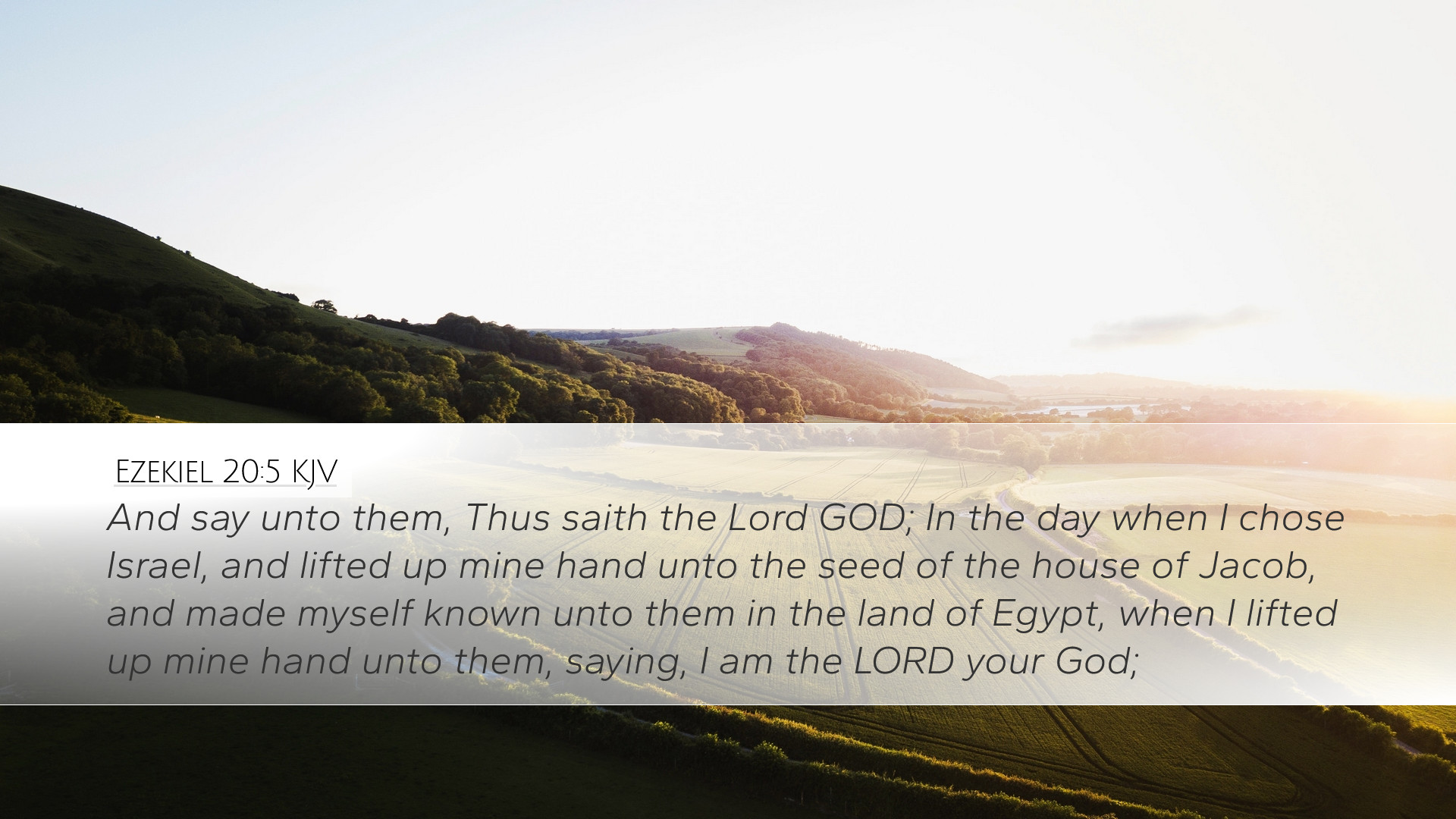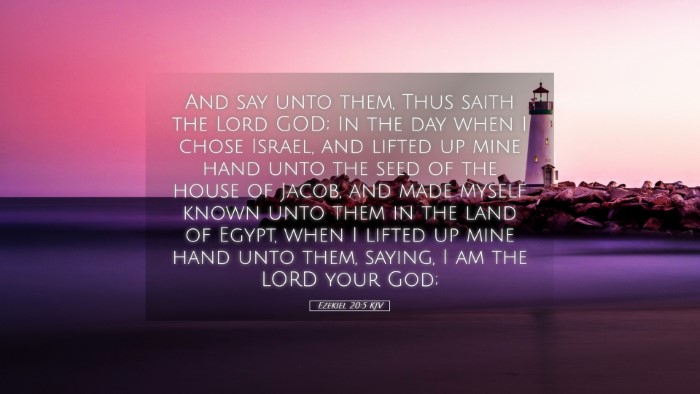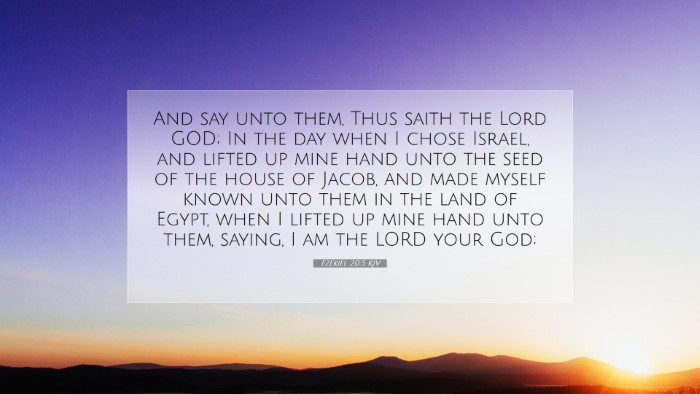Ezekiel 20:5 Commentary
Verse Text: "And say unto them, Thus saith the Lord God; In the day when I chose Israel, and lifted up mine hand unto the seed of the house of Jacob, and made myself known unto them in the land of Egypt, when I lifted up mine hand unto them, saying, I am the Lord your God."
Introduction
The verse from Ezekiel 20:5 serves as a pivotal reflection on God's covenant relationship with Israel. Here, God is speaking to His people about the history of their calling and covenant, emphasizing His active role in their selection as a nation. A close examination reveals deep theological implications about God's sovereignty, grace, and the call to obedience.
Historical Context
The prophet Ezekiel emerged during a critical period of Israel's history, when the nation was in exile. This context shaped his words, which are directed towards a people who needed to remember their identity and purpose as chosen by God.
Matthew Henry's Insights
According to Matthew Henry, this passage highlights God's initiative in choosing Israel from all nations. He notes that God's election was not based on any merit of the people but solely on His sovereign will. This choice illustrated God's gracious dealings with humanity, emphasizing that even amid rebellion, God remained a covenant-keeping God.
Albert Barnes' Commentary
Albert Barnes emphasizes the significance of God 'lifting up his hand,' which he views as an expression of divine authority and promise. Barnes outlines that the act of choosing Israel meant that God had a plan for them—revealing Himself and His holiness through His laws and ordinances. Barnes' observations remind us that God's choice comes with responsibility, urging Israel to reflect on their covenant obligations.
Adam Clarke’s Perspective
Adam Clarke takes a slightly different approach by analyzing the timing of this revelation. He explains that God's revelation to Israel during their time in Egypt demonstrates His continual desire to establish a relationship with His people, even in their darkest times. Clarke emphasises this notion of God's persistent pursuit, which illustrates a profound love that does not abandon even the most wayward of hearts.
Theological Themes
- Divine Selection and Sovereignty: The assertion that God chose Israel conveys His sovereign control over creation. It reflects the overarching biblical theme that God actively works through specific people and events for His divine purposes.
- Relationship and Revelation: The relationship established between God and Israel is characterized by divine revelation. This serves as a reminder of the importance of understanding God's character and will through His Word, which is foundational for faith.
- Covenantal Responsibility: The calling of Israel implies a covenantal responsibility. As highlighted by Barnes, with divine choice comes an expectation of obedience and fidelity to God's commandments, demonstrating love in action.
Practical Implications
For pastors and theologians, this verse serves as a call to remember that God's choosing is not merely historical but also deeply practical for today's believers. The realities of being chosen by God require self-examination regarding how one fulfills the responsibilities that come with that calling.
Students and scholars can glean insights about the nature of God’s relationship with humanity, understanding that the themes of election and grace permeate the biblical narrative. This verse encourages deeper inquiry into the nature of God's interactions with His people throughout history.
In teaching contexts, this understanding can help congregations reflect on their identity in Christ, grasping the profound nature of being called into relationship with the Divine. It offers a platform for discussing how to live out that calling in everyday life through obedience and love.
Conclusion
The commentary on Ezekiel 20:5 reveals a wealth of theological truth grounded in God's character. By considering the insights from prominent public domain scholars, it is evident that this verse invites believers to embrace their identity as chosen people, called to live in covenant relationship with God. Each scholar offers a unique perspective that contributes to a richer understanding of the implications of this sacred text.


